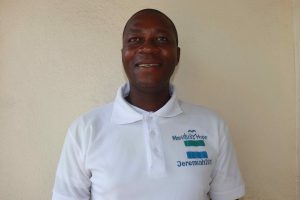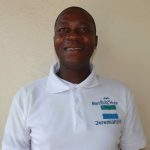October, 2022: Maffereh Community Well Rehabilitation Project Complete!
We are excited to share that a safe, reliable water point at Maffereh in Sierra Leone is now providing clean water to community members! We also conducted hygiene and sanitation training, which focused on healthy practices such as handwashing and using latrines.
"Fetching water every morning before going to school [was] a hard task for me," said 12-year-old Rugiatu B.

Rugiatu pours water at the new pump.
Rugiatu continued: "I used to fetch water from the swamp down the hill at the seaside. The area of the swamp well is not safe, so I could not go there to fetch water alone. I am happy now that I can fetch water from this new pump. I [won't] go [a] far distance to fetch water anymore, and I can get clean and safe water from this pump to [bathe] and go to school early. I will also fetch enough water from this pump after school without wasting time. Thanks to the entire team."
"I used to suffer a lot and walk [a] far distance to get water," said 52-year-old farmer Salamatu Bangura.

Salamatu pours water as community members celebrate at the well.
"Sometimes when I [went] to the swamp, I even got injured because the road to this swamp source is slippery and hilly, which is difficult to walk on with a bucket of water on my head," Salamatu continued. "But with this pump in my community, all my problems have been solved, and all suffering to get water has [been] put to an end because now I get access to water in my village which is close to my house. I say thanks to [everyone] for such goodness in my village."

Rugiatu and Salamatu celebrate with other happy community members.
We held a dedication ceremony to officially hand over the well to the community members. Several local dignitaries attended the ceremony, including representatives from the Port Loko District Council, the Ward Council, and the Ministry of Water Resources. Each official gave a short speech thanking everyone who contributed to the rehabilitation of the water project and reminding everyone to take good care of it. Then, Rugiatu and Salamatu made statements on their community's behalf. The ceremony concluded with celebration, singing, and dancing.

Clean Water Restored
The drill team arrived the day before beginning work. They set up camp and unpacked all their tools and supplies to prepare for drilling the next day. The community provided space for the team to store their belongings and meals for the duration of their stay. The following day, the work began.

First, we raised the tripod, the structure we use to hold and maneuver each drilling tool. Next, we measured the well's original depth. We then socketed the pipes and installed a casing.
Finally, we lined up the drill rods and started to drill! We reached a final depth of 20 meters with water at 17.2 meters. The hand-drill method allowed the team to install the cylinder far below the aquifer so that the community has excellent water access throughout the year.

With drilling complete, we installed screening and a filter pack to keep out debris when the water is pumped. We then cemented an iron rod to the well lining and fixed it with an iron collar at the top.
Next, we bailed the well by hand for three days and flushed it, clearing any debris generated by the drilling process. Finally, we tested the yield to ensure the well would provide clean water with minimal effort at the pump.

Bailing.
As the project neared completion, we built a new cement platform, walls, and drainage system around the well to seal it off from surface-level contaminants. The drainage system helps to redirect runoff and spilled water to help avoid standing water at the well, which can be uncomfortable and unhygienic and a breeding ground for disease-carrying mosquitoes.
At last, we installed the pump and conducted a water quality test. The test results showed that this was clean water fit for drinking!

New Knowledge
Before conducting any hygiene training, we called and visited the local water user committee to understand the community’s challenges and lack of sanitation facilities. We shared the findings from our discussions with the committee members to help them make the necessary adjustments before the training began. For example, we identified households without handwashing stations or ones that may need to repair their latrines. With this information, community members worked together to improve hygiene and sanitation at home.
After this preparatory period, we scheduled a time when members from each household using the water point could attend a three-day hygiene and sanitation training. We then dispatched our teams to the agreed-upon location to hold the meeting.

Training topics covered included handwashing and tippy taps, good and bad hygiene habits, disease transmission and prevention, COVID-19, worms and parasites, dental hygiene, proper care of the well's pump, keeping the water clean, the cost recovery system, dish racks and clotheslines, the importance of toilets, keeping latrines clean, balanced diets, the diarrhea doll, and HIV and AIDS.
One of the most educative topics was malaria, which many people have been infected with in Maffereh.
"For some participants, this was their first time knowing that only a mosquito transmits the malaria parasite from one person to another," said our field officer, Alie. "It was the greatest surprise [for them] to know that mosquito does not only transmit malaria but also other diseases like "big foot" (Elephantiasis) and yellow fever. When these diseases were mentioned by the facilitators, [participants] were all seated with eyes opened. According to them, oranges, bedbugs, and nut oil are the causes of these diseases."

One community elder, Pa Sorie Kamara, said he was not convinced. He would only admit that mosquito bites can transmit some diseases, but not malaria, because mosquitos bite him every day, but he rarely gets sick. His fellow participants challenged this way of thinking by asking him why children get sick with malaria even though they are not allowed to eat oranges or vegetable oil or why people get malaria when no one plants oranges in their communities. At this point, Pa Sorie sat down quietly without saying a word. Another participant, Amadu, asked Pa Sorie to listen and learn what he had never known.

Participants show how shaking hands can trasmit germs.
Everyone asked how to prevent malaria now that they know its transmission routes. They were taught how to properly use the mosquito nets that their community health workers had supplied to them. We also reminded them to always visit the hospital whenever they or their children get sick and not to depend on traditional herbs or drug peddlers that may do more harm than good. They were all happy about the knowledge and promised to do just as advised by Amadu.
Another illuminating topic was childhood nutrition, which we demonstrated through the visual aid of a three-legged stool, with each leg representing a different food group. Our facilitators had noticed a few malnourished children in Maffereh, so they explained that children need a diverse diet with plenty of nourishing food to flourish.

Childhood nutrition.
One female participant named Emma Dumbuya said she always serves the best part of any meal to her husband because the man is head of the house and he must be taken care of. But one male participant stood up and said, "Children are our future leaders, so we must give them good nutritious food to eat so that they grow well and be healthy. They should not be treated as if they are not human."
In the end, the training participants said they would listen to the modern way of thinking and feed their children well-balanced foods.

Constructing the stool.
"Thank God for this new knowledge that I received from the team," said 64-year-old farmer Sorie Kamara. "I will teach my children how to take care of themselves as well as the community. And this lesson must make an impact on my life and my family as well. One thing I learned from this training is [about] drinking contaminated water. I never knew that the water I used to drink is not pure and safe to drink, and it [made] me get sick without knowing that it’s caused by these water sources I am using."

Sorie.
Conclusion
This project required a substantial collaboration between our staff, our in-country teams, and the community members themselves. When an issue arises concerning the well, community members are equipped with the necessary skills to rectify the problem and ensure the water point works appropriately. However, if the issue is beyond their capabilities, they can contact their local field officers to assist them.
Also, we will continue to offer them unmatchable support as a part of our monitoring and maintenance program. We walk with each community, problem-solving together when they face challenges with functionality, seasonality, or water quality. Together, all these components help us strive for enduring access to reliable, clean, and safe water for this community.
With your contribution, one more piece has been added to a large puzzle of water projects. In our target areas, we’re working toward complete coverage of reliable, maintained water sources within a 30-minute round trip for each community, household, school, and health center. With this in mind, search through our upcoming projects to see which community you can help next!
Thank you for making all of this possible!

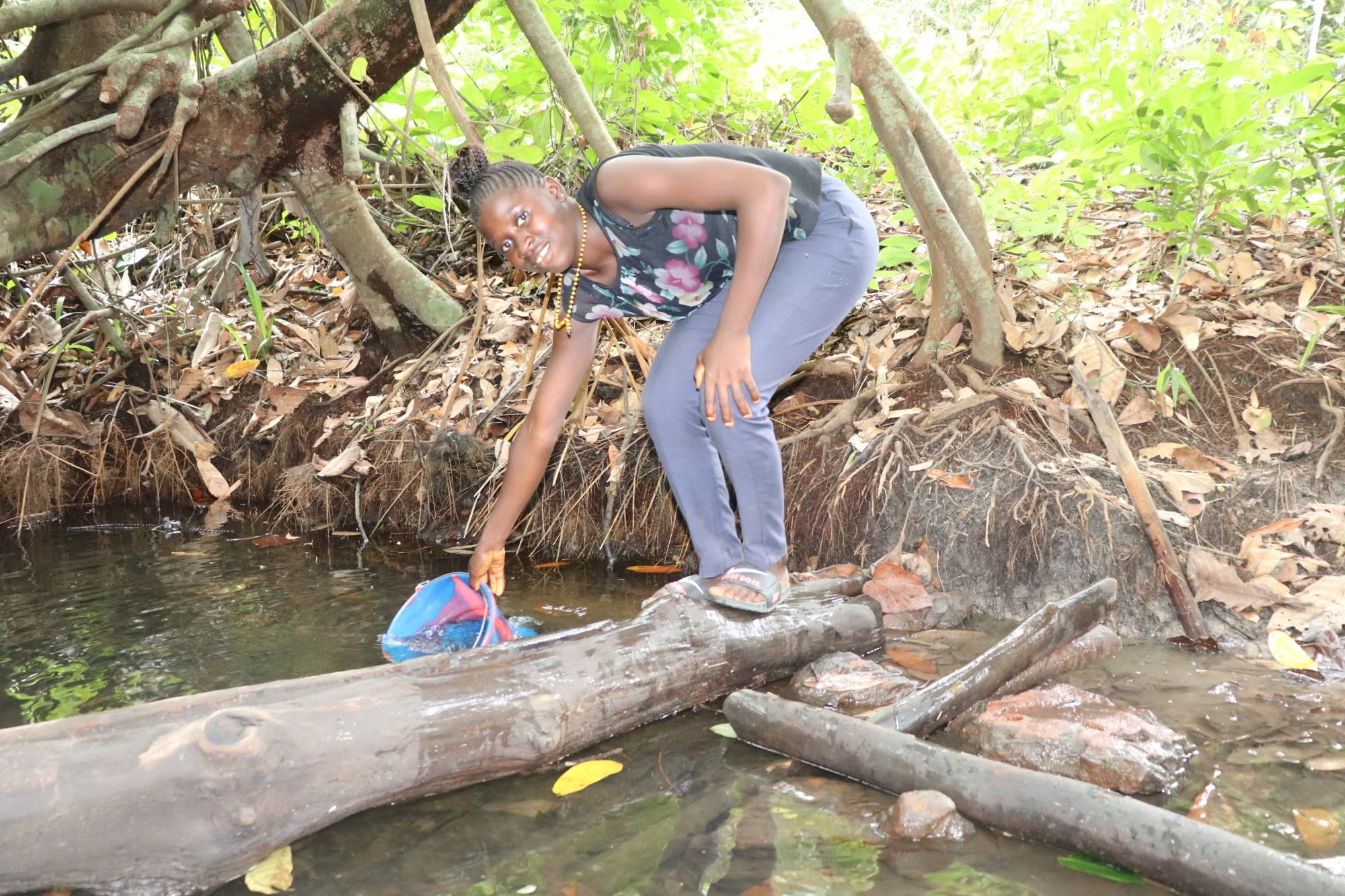
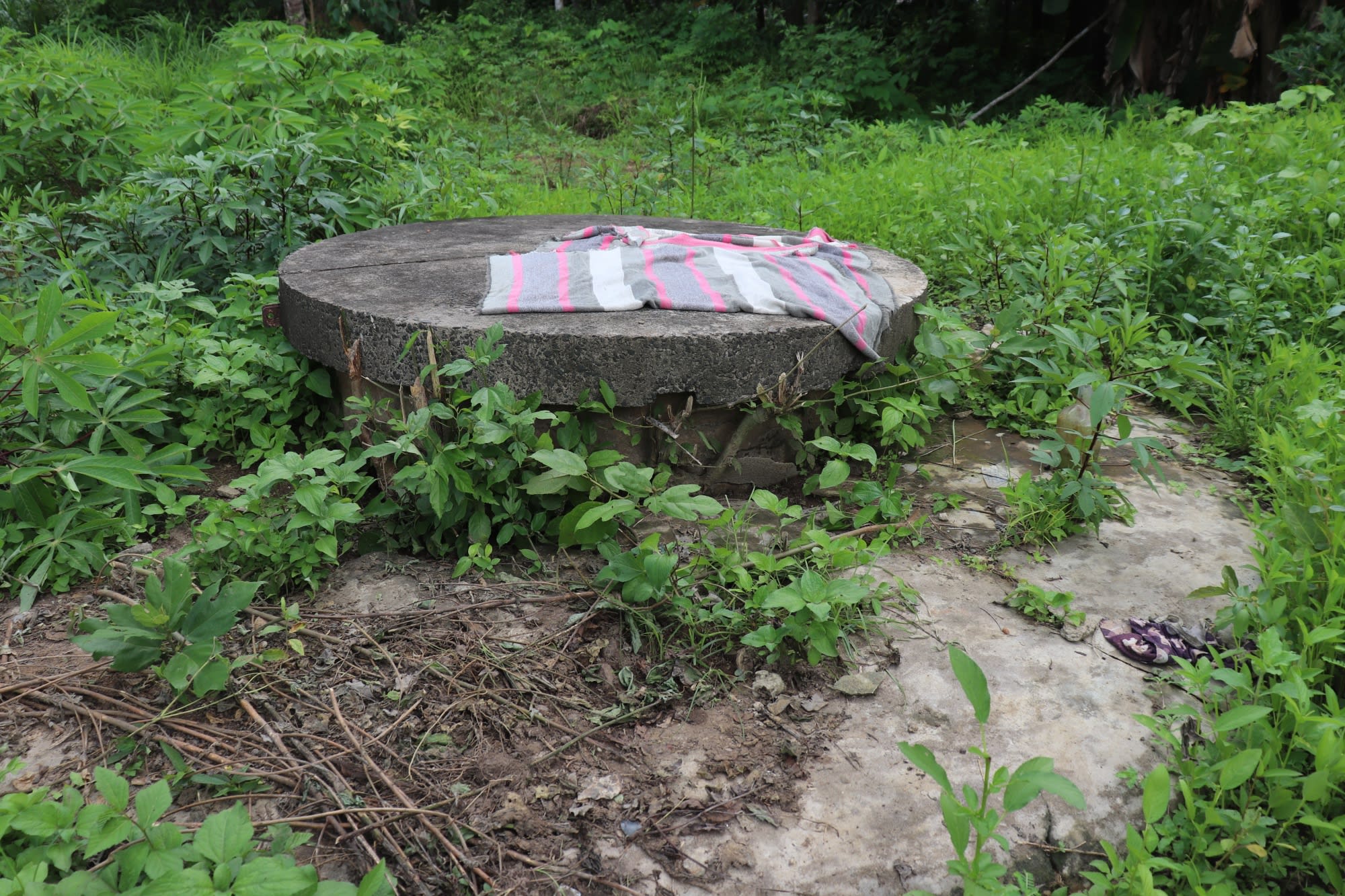
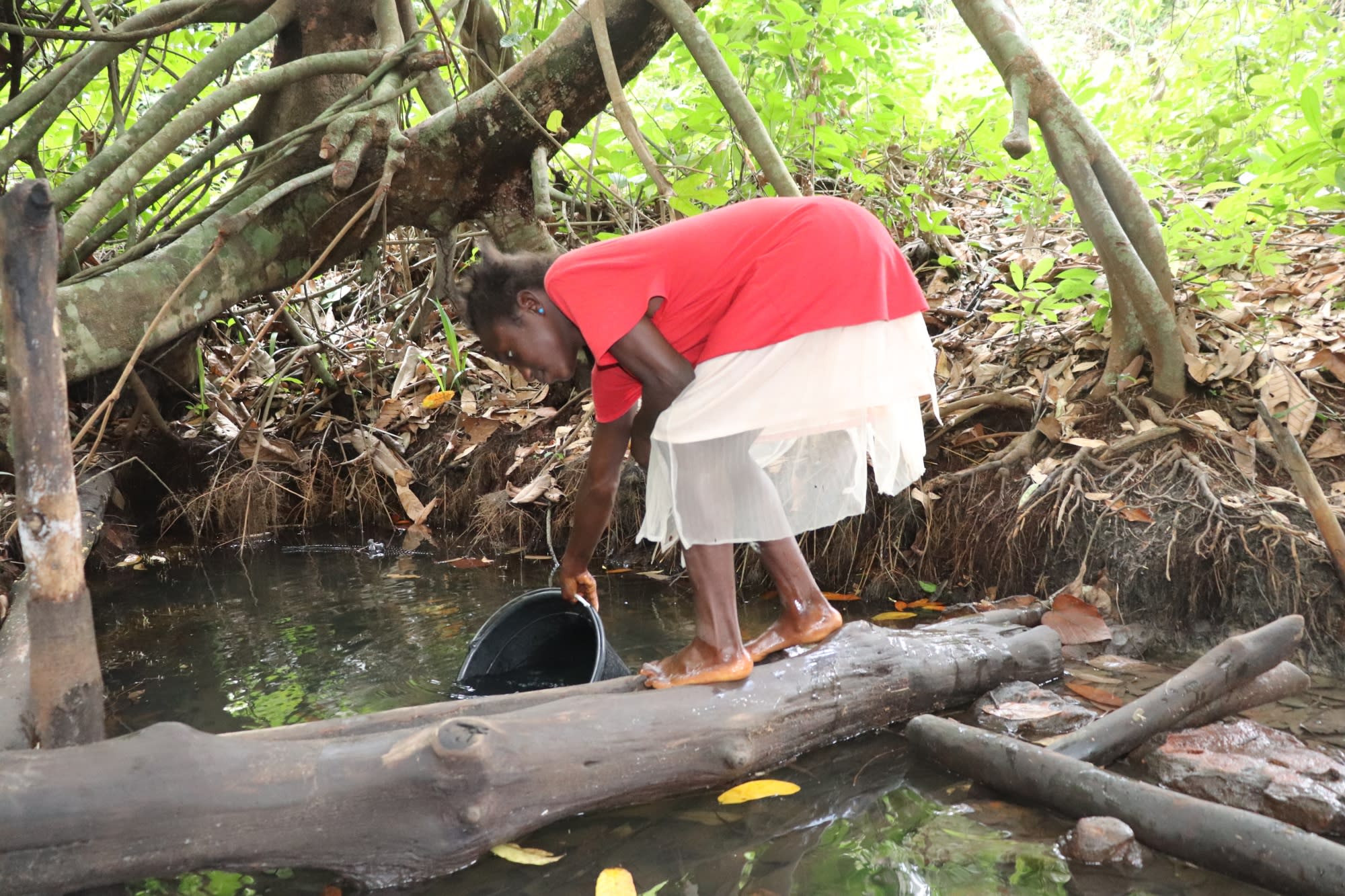

 Borehole Well and Hand Pump
Borehole Well and Hand Pump
 Rehabilitation Project
Rehabilitation Project








